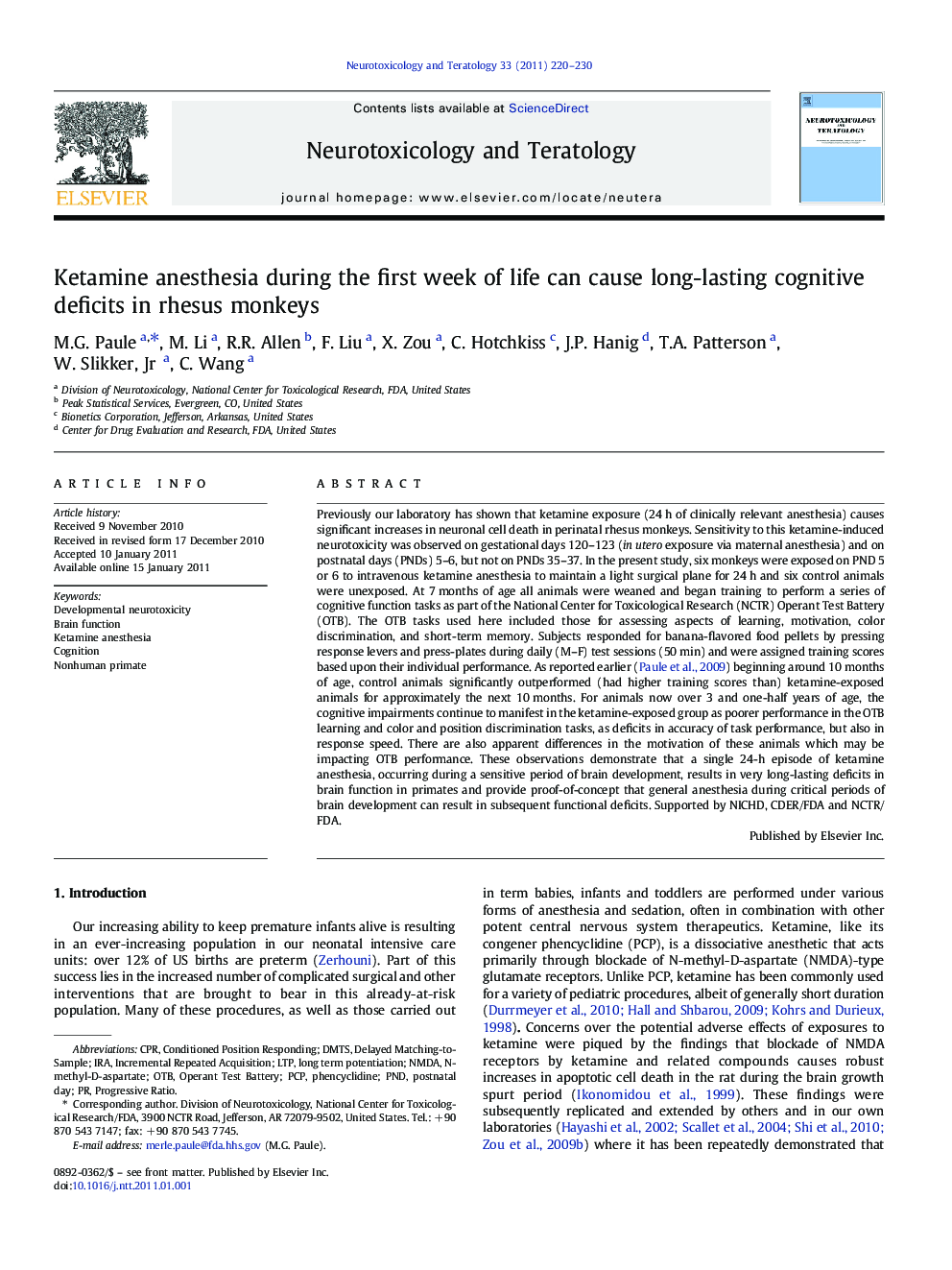| کد مقاله | کد نشریه | سال انتشار | مقاله انگلیسی | نسخه تمام متن |
|---|---|---|---|---|
| 2591626 | 1131819 | 2011 | 11 صفحه PDF | دانلود رایگان |

Previously our laboratory has shown that ketamine exposure (24 h of clinically relevant anesthesia) causes significant increases in neuronal cell death in perinatal rhesus monkeys. Sensitivity to this ketamine-induced neurotoxicity was observed on gestational days 120–123 (in utero exposure via maternal anesthesia) and on postnatal days (PNDs) 5–6, but not on PNDs 35–37. In the present study, six monkeys were exposed on PND 5 or 6 to intravenous ketamine anesthesia to maintain a light surgical plane for 24 h and six control animals were unexposed. At 7 months of age all animals were weaned and began training to perform a series of cognitive function tasks as part of the National Center for Toxicological Research (NCTR) Operant Test Battery (OTB). The OTB tasks used here included those for assessing aspects of learning, motivation, color discrimination, and short-term memory. Subjects responded for banana-flavored food pellets by pressing response levers and press-plates during daily (M–F) test sessions (50 min) and were assigned training scores based upon their individual performance. As reported earlier (Paule et al., 2009) beginning around 10 months of age, control animals significantly outperformed (had higher training scores than) ketamine-exposed animals for approximately the next 10 months. For animals now over 3 and one-half years of age, the cognitive impairments continue to manifest in the ketamine-exposed group as poorer performance in the OTB learning and color and position discrimination tasks, as deficits in accuracy of task performance, but also in response speed. There are also apparent differences in the motivation of these animals which may be impacting OTB performance. These observations demonstrate that a single 24-h episode of ketamine anesthesia, occurring during a sensitive period of brain development, results in very long-lasting deficits in brain function in primates and provide proof-of-concept that general anesthesia during critical periods of brain development can result in subsequent functional deficits. Supported by NICHD, CDER/FDA and NCTR/FDA.
Journal: Neurotoxicology and Teratology - Volume 33, Issue 2, March–April 2011, Pages 220–230